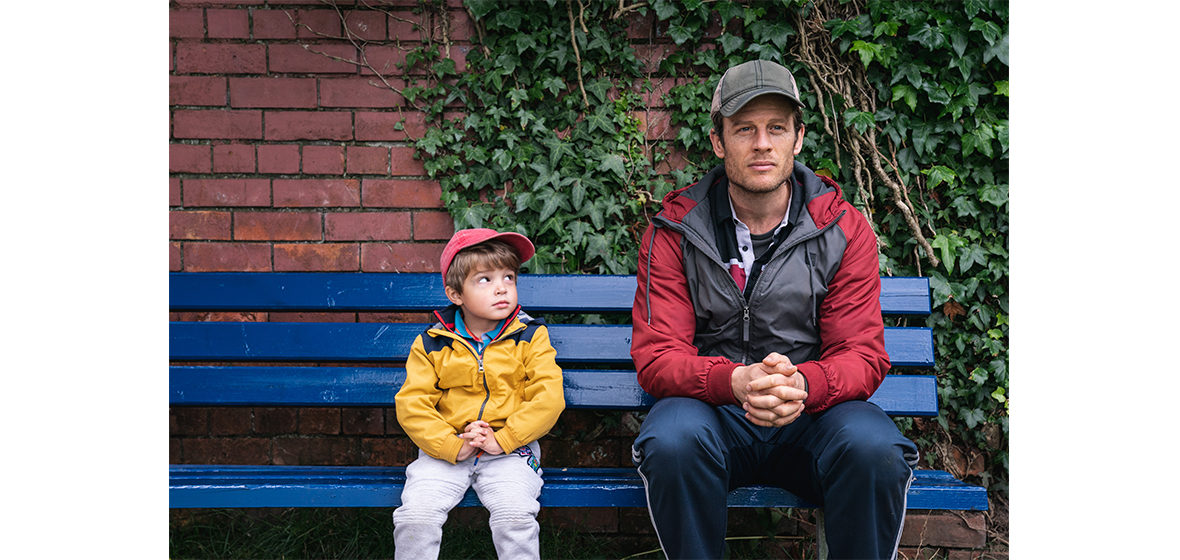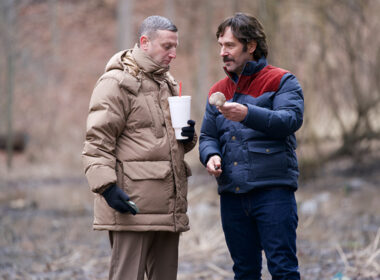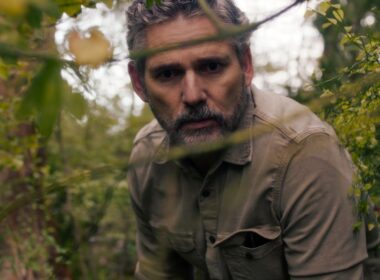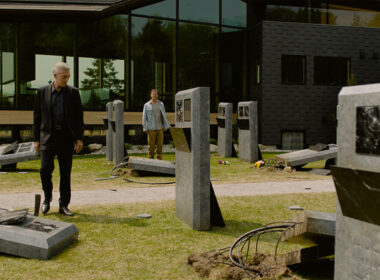Rating: ****
I don’t think any art form has such a complicated relationship with the artist’s parents quite like cinema. Specifically, modern cinema. It’s the blood pumping in almost all Steven Spielberg films and lives in between the lines of the work of the Andersons (both Paul Thomas and Wes). When Roy Scheider neglected his son because he was obsessed with catching a shark in Amity Island, filmmakers everywhere were never the same.
This is unfair to dads. Dads are great. Willing participants in a child’s development have a connection that is ever only emotional. Nowhere Special believes that dads rock. So much so it can break your heart.
Loosely based on a true story, Nowhere Special starts off with a simple premise of a father, John (James Norton), searching for a family who will adopt his son, Michael (Daniel Lamont), after he dies from an unspecified terminal disease. The mother disappeared after Michael was born and is out of the picture. John works hard as a window-cleaner and handyman to provide some stability to the future of Michael, but it’s the family who will take over that keeps consuming him. We follow father and son as they go through everyday father-and-son shenanigans and intercut with the meetings where a new family tries to convince both they are the ones who should be entrusted with the task.
We don’t learn much about John. Humble working class beginning, tattoos on his body and his in-your-face demeanour hint at a hard life – it’s only prejudice that makes us think of crime, but it does help to contrast with how he reacts around Michael. He doesn’t show during his last days with his son if he was ever violent or absent. His only priority is his utter dedication to providing an everyday life while finding the one that will give him the same kind of nurturing attention. We don’t see John succumbing to disease nor suffering in silence – if he does, we don’t know.
How hard is it to find a worthy family for your child? It’s impossible, of course. There aren’t a lot of red flags in all the families we meet, and Pasolini doesn’t give time for John to judge them. The time spent with them feels earnest and realised, almost like trying to mimic a documentary. There’s a wealthy upper-middle-class family with a gorgeous house in the countryside and the possibility of providing private education; there’s a lovely family dedicated to foster children in need, a single mother from a council estate with the emotional drive to be a caring mother even in the face of her economic instability. The only time there’s some tension is a simple moment with a middle-class family asking Michael to return a stuffed toy they had given to him prior, as a way to convince him to return. The gasp I let out as if I had just discovered John Huston’s secret in Chinatown, only comparable to the silent piercing gaze John drops on the film in a perfect moment of quiet judging.
Norton’s performance is so perfect. It becomes a defining moment in an actor’s career, and we will undoubtedly see more. Contained but never frenzied, he somehow conveys perfectly the grief of a man that first can’t externalise it as much as he can but also doesn’t know how to do it. A person constantly pondering about his son. We see him agitated when he confronts the bureaucratic process that he hasn’t found a suitable family for his son.
Pasolini deserves accolades for letting Norton carry the film without the need for a grand dramatic moment. He’s a seasoned director, who you may remember from the classic 90s comedy The Full Monty, but it’s so easy to succumb to melodramatic vices, especially for a low-budget production.
We are left with that rare breed of drama that lets the emotion bloom within you instead of slapping it on your face. And it could – Michael is the quintessential adorable child that would pull the heartstrings of the grimmest black-hearted man. And yet Pasolini lets the emotion come from within, rarely reminding you of why we are watching this story and makes it so that we can never forget. That every minute is just one step closer to the inevitable. A resolution is the biggest tragedy of all.




